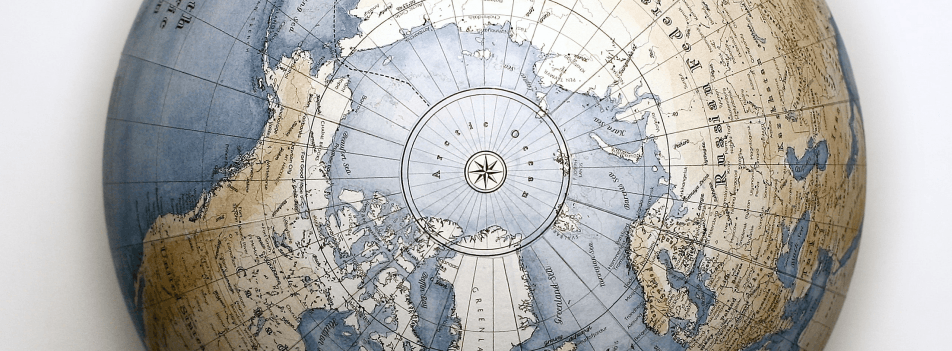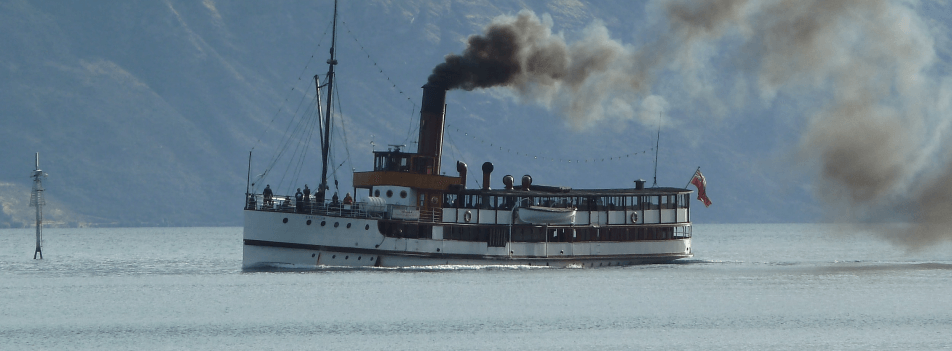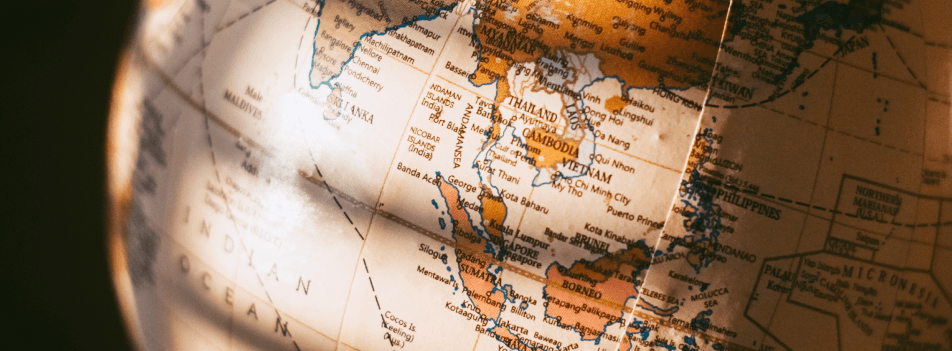INTRODUCTION
For more than 170 years, Smith Bell Corp. has been dynamically involved in various business ventures in the Philippines. Reputed for its integrity and professional excellence, Smith Bell's history is colored with a sense of expansion, growth, and diversification.
THE EARLY BEGINNINGS
The origins of Smith Bell Corp. date back to 1838, when a young Scotsman named James Adam Smith was sent to the Philippines to look after the interest of Jardine Matheson & Company. Six years later, after establishing connections, Smith went into partnership with Henry Constable and Robert Philip Wood, who in June of 1846 opened the firm Constable, Wood and Company. This partnership eventually served as the foundation of what would become Smith Bell Corp.
The name Smith Bell Corp. finally came into being when Robert Wood set up partnership with an American named Lawrence R. Bell. Bell managed the company for some time after Wood left for England, and while Bell eventually also left Manila for unknown reasons, the name lived on.
The company primarily engaged in trading, import and export. Hemp (abaca) was a leading item for export and was shipped mostly to the United States to meet the demand of the Atlantic and Pacific shipbuilders. This extensive trading enabled Smith Bell to serve as a bridge between Asia and the West, introducing the Philippines to foreign goods and opening its international markets.
By 1849, Smith Bell was appointed agents of Imperial Insurance Company, Ltd. marking the entry of Smith Bell into the insurance industry. Years later, in 1877 it would be appointed as agents for Lloyd's of London, as well as for seven other insurance companies including Sunlife of Canada, until Sunlife set up its own office in Manila in 1928.
The year 1866 saw the expansion of Smith Bell as it opened its Cebu branch, the first of many branches to be established throughout the archipelago. In the decades to come, Smith Bell's pioneering efforts would gradually emerge, but the company would be beset with more difficulties on a national scale.
REVOLUTION AND CRISIS
In 1880, the country experienced one of its worst rice shortages because of milling inadequacies. Responding to this acute situation, Smith Bell was able to distribute rice to the southern provinces through the operation of its own fleet of lighters and inter-island steamers. In addition to the rice shortage, the company also had to cope with the sugar shortage crisis. As a response, Smith Bell established the Luzon Sugar Company, the first sugar refinery in the islands located a few miles north of Manila.
While the company was forced to contend with one crisis after another, it also managed to reach peak performance. During these years, most foreign firms that engaged in the import-export trade and banking operations also ventured into shipping, fire and marine insurance, and became agents of international lines and companies. Towards the end of the 19th century, Smith Bell held the agencies of at least four banking institutions, seven insurance firms and at least six shipping lines and was the representative of several commercial Spanish inter-island vessels.
Aside from its regular businesses, Smith Bell's achievements and projects also showed marked diversification and expansion. One of its most prominent accomplishments was the erection of the San Sebastian Church. Smith Bell supervised and arranged the construction of the all-steel infrastructure, which was prefabricated in Belgium and assembled piece by piece.
Moreover, during the revolution era, Smith Bell also attempted to pioneer in oil exploration. It started to drill oil in Cebu in 1896 but abandoned the project as the oil was of non-commercial quantity.
THE AMERICAN ERA
Coinciding with the extension of free trade between the United States and the Philippines, Smith Bell was incorporated into a domestic liability corporation in 1909. The War in Europe from 1914 to 1918 gave Smith Bell the chance to achieve maximum prosperity as products such as copra, hemp and sugar were in great demand and the islands imported more manufactured goods.
Around this time, Smith Bell's pioneering spirit and risk-taking capabilities were once again boldly enhanced as it further expanded and diversified. In shipping, the company acted as general managers of Compañia Maritima and represented a number of British steamship companies. Smith Bell also became agents for the Asiatic Petroleum Company, which was to be later known as Shell. It also acquired Underwood Corporation to venture into business machines and office equipment. Another breakthrough involved the forming of Red V Coconut Products, Ltd. which entailed the manufacture and exportation of desiccated coconuts.
All these dynamisms ended with the onset of World War II. Smith Bell closed shop as most of its key staff were imprisoned in concentration camps by the Japanese.
PHILIPPINE INDEPENDENCE
After the War, the company returned to operation and the immediate reconstruction of its warehouses. With the support of banks, Smith Bell once again began to import building materials such as steel and other construction materials. The main nucleus of Smith Bell's staff started to re-open its services in insurance, trading, import and export, and shipping. The Red V Coconut products were rehabilitated and by 1945, the company found itself managing the Domestic Insurance Company of the Philippines.
Smith Bell also diversified into printing as it established the Philippine Business Forms, which was involved in packing, and printing of cartons and labels. It acquired the C.M. Lovsted & Co., which was involved in the trading of a wide range of industrial products and equipment.
In 1959, a law was passed by Congress restricting domestic retail trade to Filipino citizens and corporations, as such, Smith Bell became 60% Filipino-owned. This marked the gradual exit of the British as key executives of the company.
In the decade of the 60's, Smith Bell diversified further as it expanded its machinery and industrial products business to take advantage of the growth of diesel engines. It also put up the first Philippine factory to manufacture machine-woven carpets from local natural fibers.
In insurance, Smith Bell took controlling interest of Henry Hunter Bayne Adjustment Co. and expanded into all types of insurance adjustment work.
In 1969, Smith Bell Travel and Tours was incorporated, giving the tourism industry a boost. It pioneered the first international chartered flights from Cebu direct to Hong Kong, Taipei and Tokyo, and entered a joint venture with the Thomas Cook travel group.
As the 70's and 80's came, the company consolidated and sold some of its investments, positioning itself in its areas of expertise. Today, the Smith Bell Group of Companies offers a wide range of services such as insurance and re-insurance brokers, crewing agency and manning, vessel husbanding, tramp/tank, and liner services, chartering brokers, heavy equipment suppliers, loan facilities and financing, and import and export. It also offers claims settling, cargo surveys, hull and machinery surveys, surveillance and superintendence, petroleum, and petrochemical surveys, hydrotesting and tank calibrations.
Backed by over one hundred and seventy five years of experience, expertise in its specialized fields, and manned with a staff of competent and committed individuals, Smith Bell Corp. has established a reputation of professionalism and reliability. As it faces the daily challenges of an ever-changing world, Smith Bell continues to rely entirely on its unchanging tradition of Integrity and Excellence -- its changeless core amidst a changing world.
ABOUT US
With more than 170 years of quality service, we stand as one of the oldest companies in the Philippines.
SERVICES
- Lloyd's of London Agency Division
- Smith Bell Mini-Hydro Corporation
- Smith Bell Insurance Agency, Inc.
- Smith Bell Loan Resources, Inc.
- Wilhelmsen-Smith Bell Shipping, Inc.
- Wilhelmsen-Smith Bell Manning, Inc.







